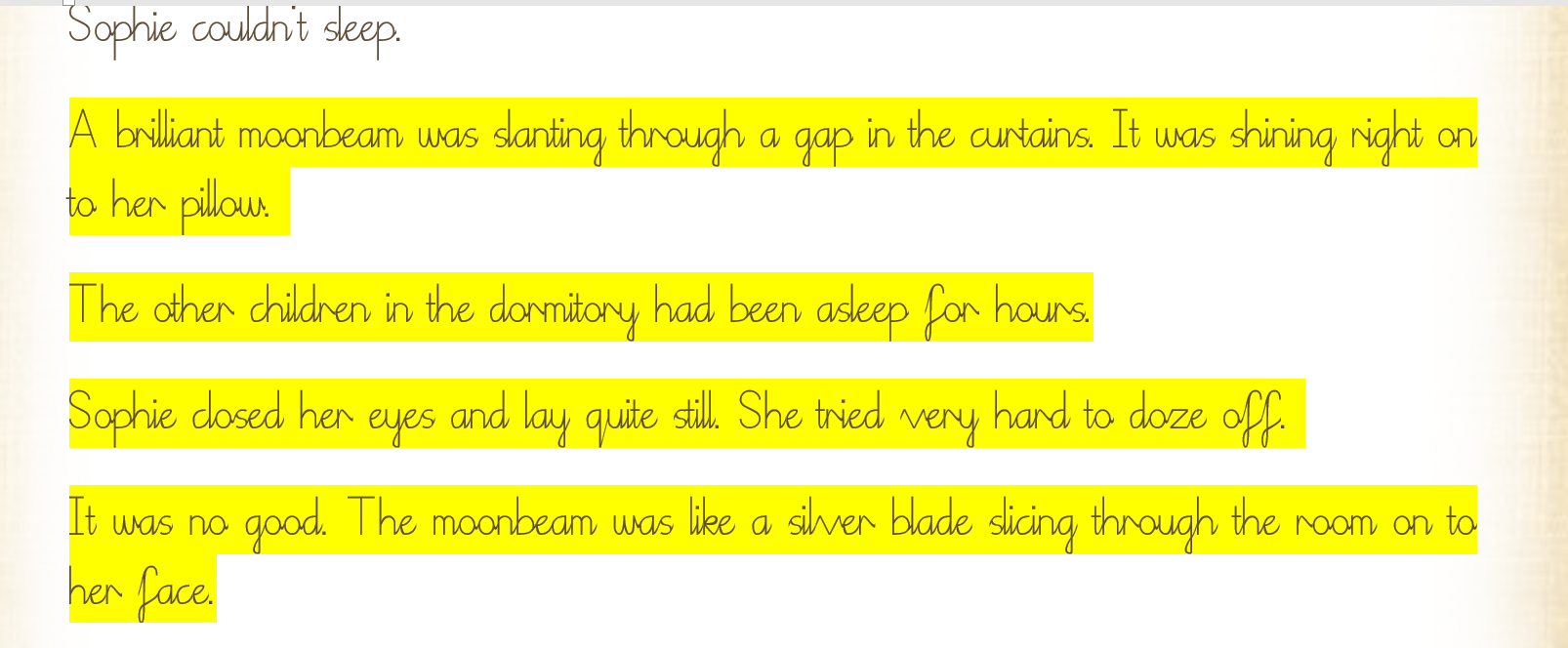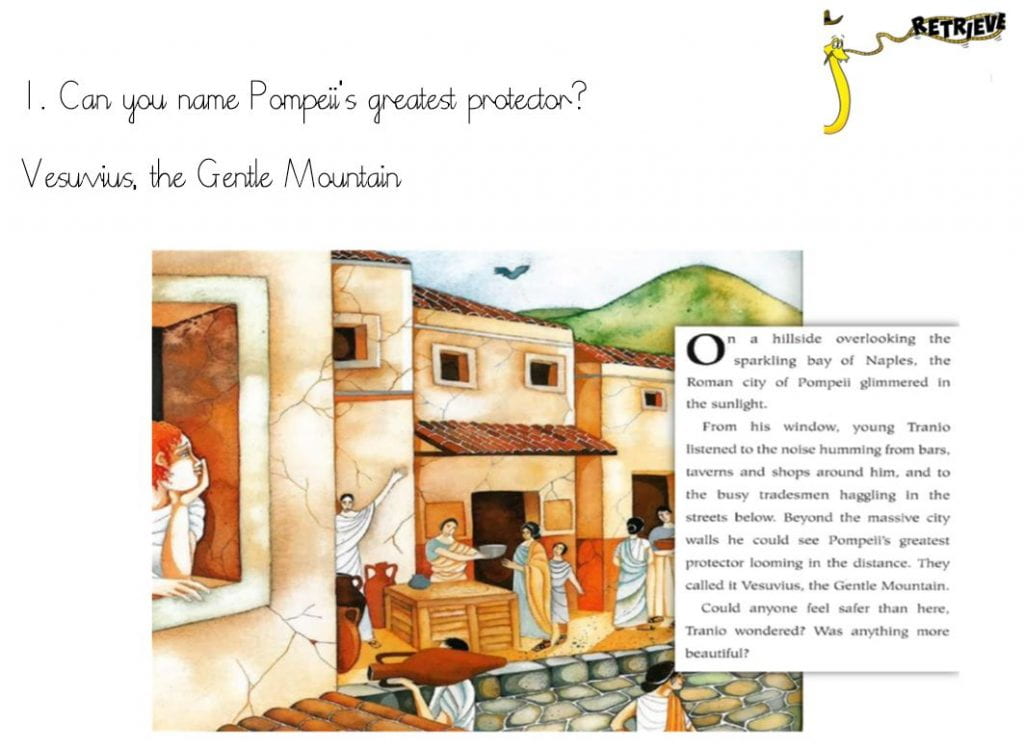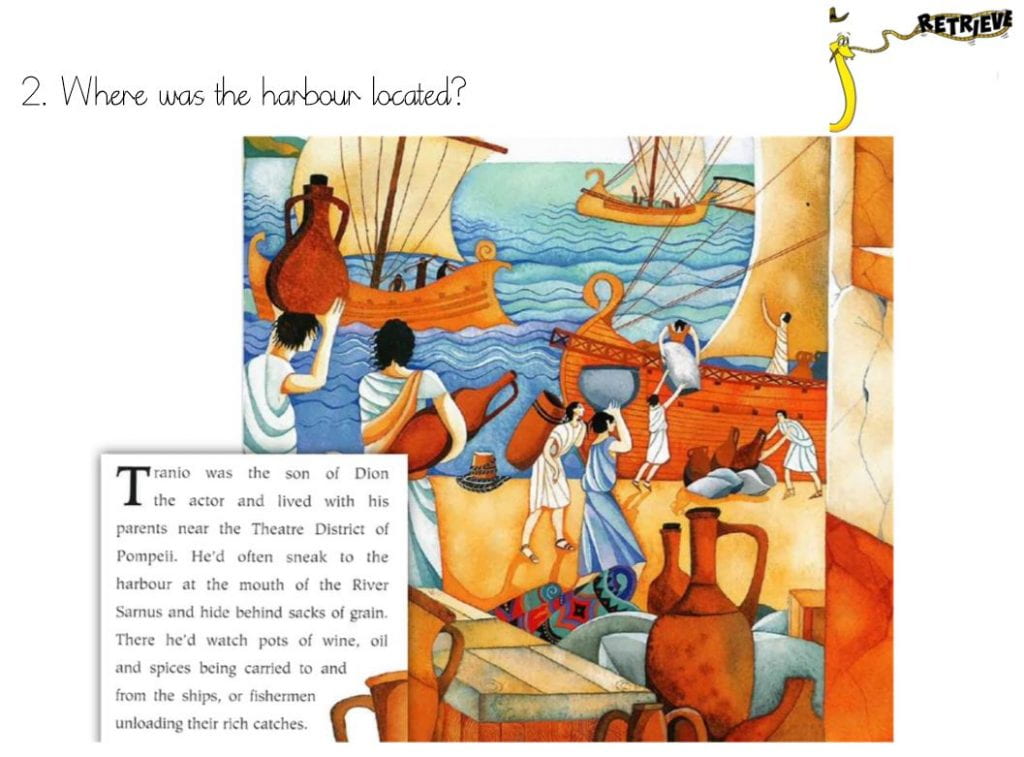Today’s timetable
Morning
- Reading: personification
- Writing: using personification
- Maths: 6 times table and division facts
Afternoon
- Reading: guided reading Pompeii
- Topic: reactive volcanoes
Reading
Here is our third look at ‘The Witching Hour’ and the third trick that we are going to see Roald Dahl use. Today, we are going to look at the idea of personification. This is where an author gives something that is not living, the characteristics of a person or living thing. He basically makes something that is not alive into a character!
[embeddoc url=”https://birdwellyear3.edublogs.org/files/2021/01/The-Witching-Hour.docx” download=”all” viewer=”google” ]
This is the bit of the text we are interested in:

Writing
Let’s take a look at how we can use this idea of personification to make paragraph 3 of our story as creepy and thrilling as the previous paragraphs.
[embeddoc url=”https://birdwellyear3.edublogs.org/files/2021/01/Trick-3.docx” download=”all” viewer=”google” ]
Maths
Today’s maths session is developing your knowledge of the six times table. There is not a video for this session, I have attached some slides that you can have a look at and read through. Similar to how we go through slides in the classroom. Keep up the hard work you are doing in maths, I am so unbelievably proud of every single one of you!
[embeddoc url=”https://birdwellyear4.edublogs.org/files/2021/01/Aut4.11.5-6-times-table-and-division-facts-1.pptx” download=”all” text=”Download slides” viewer=”google” ]
Here is the worksheet for today’s learning.
[embeddoc url=”https://birdwellyear4.edublogs.org/files/2021/01/Y4-Autumn-Block-4-WO8-6-times-table-and-division-facts-2019.pdf” download=”all” text=”Worksheet download” viewer=”google” ]
Please mark your work, Year 4.
[embeddoc url=”https://birdwellyear4.edublogs.org/files/2021/01/Y4-Autumn-Block-4-ANS7-Multiply-and-divide-by-6-2019.pdf” download=”all” text=”Answers download” viewer=”google” ]
Guided reading
Today, we are looking at the retrieval viper, the retrieval questions we are looking at are direct retrieval, this means that the answers can be taken from the text and we can identify key language in the questions. Please watch the video below that shows an example of this and today’s questions. I have also attached images of the questions with the extracts.





Topic
Topic Geography
Yesterday, we introduced the idea of making our own volcano! To create a reactive volcano, we need to use specific ingredients.
Here are some videos to explain what happens inside a volcano
Today, we are going to think more scientifically about the chemical reaction that will happen in our experiments. There are 2 videos for you to watch of the experiment for you to get some ideas on how the chemical reactions work.
List A
Vinegar, baking soda, food colouring (optional)
List B
Cola, mint Menthos sweets, food colouring (optional)
Here are some prediction questions based on the reaction of the last video! Make sure you watch the diet Coke and Mentos experiment video before answering the sheet!
[embeddoc url=”https://birdwellyear4.edublogs.org/files/2021/01/Predicting-the-reactions-of-the-volcano-experiment.pdf” download=”all” viewer=”google” ]
Now we have a worksheet to work through to prepare us for our experiment, focusing on the chemical reactions that take place! You can do the work in your books and write out the steps neatly as instructions in your books or on the sheet.
[embeddoc url=”https://birdwellyear4.edublogs.org/files/2021/01/volcano-worksheet-2.pdf” width=”80%” download=”all” text=”Download Volcano sheet” viewer=”google” ]
To recap on our learning all week on volcanoes here are a list of some key words to find some more information about if you need an extra activity this afternoon :
- Active volcano – a volcano that erupts regularly
- Crater – the bowl-shaped area at the top of a volcano’s vent
- Dormant volcano – a volcano that has not erupted in a very long time, but could again
- Extinct volcano – a volcano that has not erupted in thousands of years, and doesn’t look like it will erupt again
- Magma chamber – the pool of magma located underneath the volcano’s vent
- Supervolcano – a volcano that has an eruption where the amount of stuff that comes out is more than 1,000 cubic kilometres
- Vent – the main part of a volcano where magma and gasses come through from deep inside the Earth
- Volcanologist – a scientist who studies volcanoes



